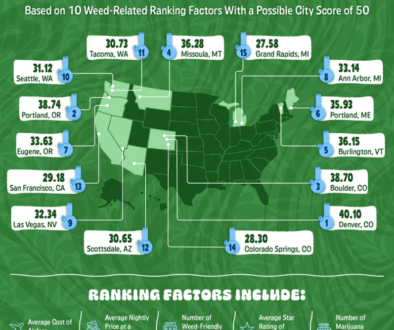Black Buddha Cannabis: The Asset-Light Model Shaping the Future of Cannabis
Black Buddha Cannabis operates under an asset-light business model, a strategy that aligns with the approach of mainstream consumer packaged goods (CPG) brands. Instead of owning cultivation and manufacturing facilities, Black Buddha Cannabis focuses on brand-building, product innovation, and distribution partnerships. By leveraging the existing infrastructure of licensed producers and retail networks, the company remains agile, scalable, and capital-efficient. This model reduces the high capital expenditures and regulatory complexities associated with plant-touching operations while allowing Black Buddha Cannabis to prioritize premium product quality, marketing, and consumer engagement.
Proven Success in Key Markets
Black Buddha Cannabis has already demonstrated the power of this approach by successfully entering highly competitive markets like Massachusetts, Pennsylvania, and Ohio. In these states, the brand partnered with established multi-state operators (MSOs) and local license holders to bring its curated product lineup to consumers. This strategy allowed Black Buddha to gain market penetration without the financial burden of owning cultivation or manufacturing facilities, ensuring a streamlined go-to-market approach.
For example, in Pennsylvania, where only medical cannabis is legal, Black Buddha Cannabis effectively positioned itself as a premium lifestyle brand, resonating with patients looking for high-quality, consistent products. In Ohio, the company quickly established a footprint by working with key industry players, securing shelf space in top dispensaries, and building strong consumer demand. Similarly, in Massachusetts, one of the most competitive adult-use markets in the U.S., Black Buddha Cannabis was able to launch and scale its presence without the heavy capital investment typically required for cultivation or processing.
Financial Strength: Lean and Focused on Growth
A key advantage of Black Buddha Cannabis’ asset-light model is that the company is not burdened by excessive debt, a stark contrast to many cannabis operators that struggle under the weight of high capital expenditures and operational costs. Rather than sinking millions into cultivation and manufacturing, most of Black Buddha Cannabis’ capital is allocated to supporting sales, marketing, and expanding retail partnerships, which directly drive revenue and bottom-line growth.
This strategic allocation of capital ensures that the company remains nimble, focusing on brand equity, consumer education, and scaling distribution. By avoiding debt-heavy infrastructure costs, Black Buddha Cannabis is better positioned to weather industry fluctuations, regulatory changes, and economic downturns while remaining profitable.
The Wana Brands Blueprint: A Model for Future Success
The success of Wana Brands, which was acquired by Canopy Growth in a deal valued at $297.5 million, serves as a prime example of how an asset-light, brand-centric model can drive significant market value. Wana, like Black Buddha Cannabis, focused on licensing agreements rather than owning production facilities. This allowed it to establish a national footprint and attract major investment. Black Buddha Cannabis is following a similar trajectory, expanding strategically while positioning itself as an attractive acquisition target for larger cannabis and CPG companies looking to enter new markets without the burden of heavy infrastructure investments.
Positioning for the Future: Capital-Driven Expansion in Emerging Markets
Black Buddha Cannabis is strategically allocating capital to fuel its growth while waiting for key state markets like Florida, Pennsylvania, and Georgia to transition to adult-use sales. In these states, medical cannabis programs are well-established, but full legalization has yet to occur. By building brand awareness, establishing dispensary relationships, and creating consumer demand now, Black Buddha Cannabis will be primed for rapid expansion when these states open up to adult-use sales.
This forward-thinking approach means that capital invested today will directly contribute to the company’s future valuation. As new adult-use markets emerge, Black Buddha Cannabis will be in a prime position to scale quickly, leveraging its established market presence and trusted brand identity. This strategy ultimately enhances the company’s long-term valuation, making it an attractive investment or acquisition target as federal legalization and new state markets unlock additional revenue potential.
The Future of Cannabis is Brand-Driven
The cannabis industry is shifting toward a brand-first, asset-light approach, mirroring the strategies of leading CPG brands. Black Buddha Cannabis’ success in multiple markets, its lean financial structure, and its focus on scalable partnerships make it a model for the future of the industry. As regulatory landscapes evolve and new markets open, the company’s ability to expand without the burden of heavy infrastructure investments will ensure sustainable, profitable growth—ultimately securing its place as a leader in the next era of cannabis.
Author
Dr. Roz McCarthy
M4MM/Black Buddha Cannabis
Founder/CEO




